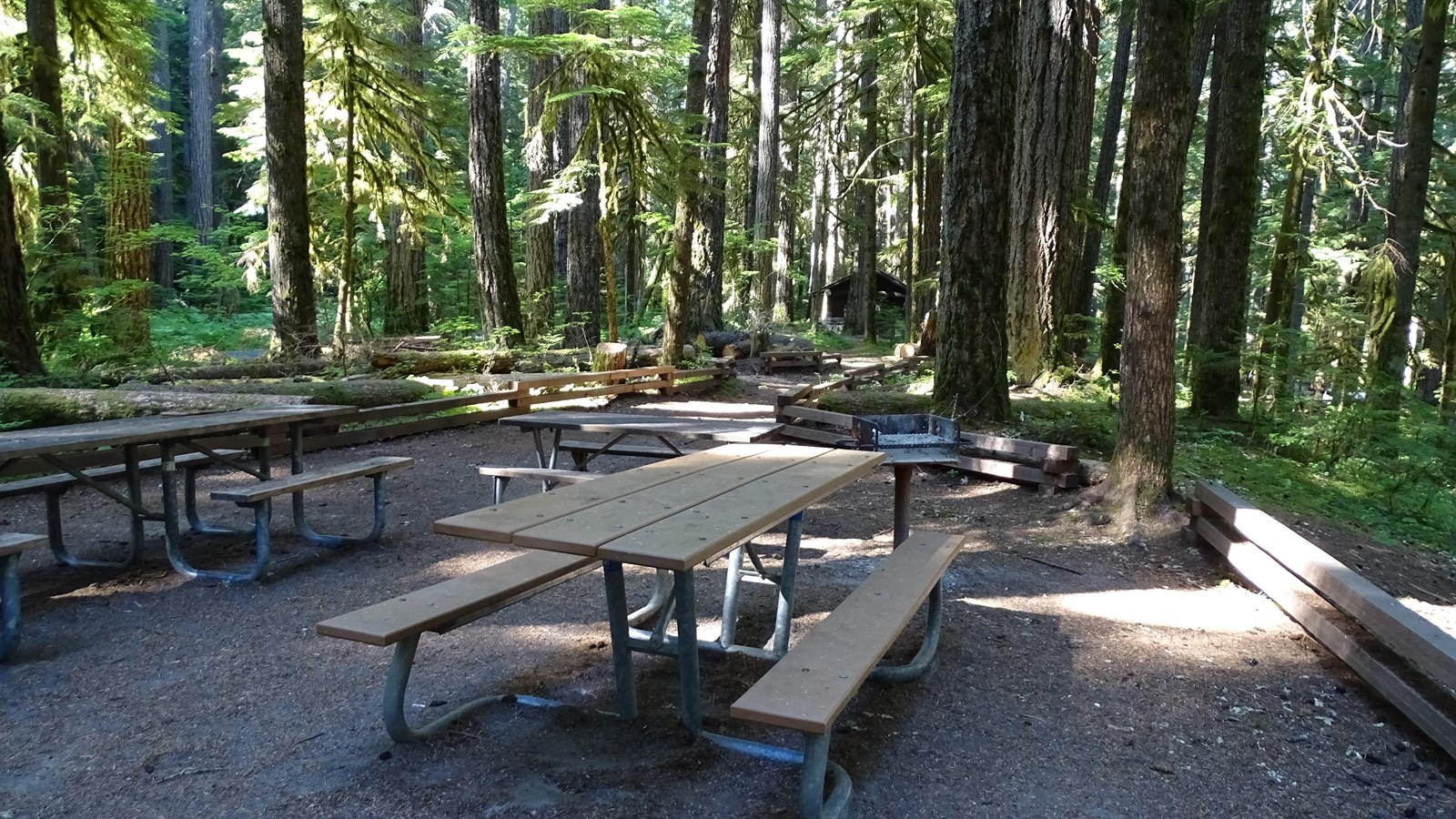Last updated: November 20, 2024
Place
Ohanapecosh Picnic Area

NPS Photo/M. Reis
Grill, Parking - Auto, Picnic Table, Restroom, Trash/Litter Receptacles, Water - Drinking/Potable
Season: Summer (May to September) - CLOSED in Summer 2025
Ohanapecosh Picnic Area is typically open late May to late September and is dependent upon weather and road conditions. NOTE: The picnic area will be closed for the summer of 2025 as part of the Ohanapecosh Campground rehabilitation project. More information is available on the Park Construction FAQs page.
Among lush forests in the southeast corner of the park lies the Ohanapecosh Picnic Area and associated campground. This picnic area provides eight tables divided into three clusters designed to accommodate groups of up to 18 people. Each cluster of tables has a grill and is situated on a path extending from the parking area to the restroom about 200 feet away. Wheelchair accessible tables are located at the first two sets of picnic tables closest to the parking area, although there are no designated accessible stalls at this parking area. Wheelchair accessible restrooms with designated parking can be found outside the Ohanapecosh Visitor Center.
The Ohanapecosh area has been an important site of human activity for thousands of years. Thanks to sampling done in the Ohanapecosh Campground in 2014, archaeologists were able to find the first ever, low elevation, pre-contact sites within the park. More field work in the summer of 2015 yielded artifacts dating to between 3,700 and 6,400 years ago, presumably from the Taidnapam people, whose descendants are part of the Upper Cowlitz and Yakama tribes. In the early 1900s, as the area became more popular for settlers, a series of resorts based around the natural hot springs were built. When Mount Rainier National Park was established in 1899, the Ohanapecosh area remained in private use and wasn’t included in park boundaries until 1933. The resort existing at the time remained in use until 1961 when the contract was ended, and the associated buildings were torn down. Since then, the picnic area, campground, and visitor center have become the primary amenities for modern day visitors, continuing a tradition of recreation and human interaction with the river and surrounding old-growth forest.
As you enjoy a picnic here, please be mindful of your impact to the landscape, wildlife, and other visitors. Trash cans are located near the parking lot for you to clean up and dispose of all waste. Additional trash and recycling bins are 200 feet. down the road past the picnic area near campsite A54. Potable water is located at restrooms and at the faucet near campsite A54. Never feed any wildlife or leave food unattended to avoid wild animals getting food that could make them sick or cause them to act aggressively. Please empty wastewater in sinks or toilets and deposit any solid food waste into trash cans. While there are grills in the picnic area, open fires are not allowed outside of the grills, and you must follow any fire restrictions in place. Pets must be on a leash, not more than six feet (1.8 meters) in length or in a crate/cage at all times. Pets are allowed along the road and paved sidewalks and may join you at your picnic at tables. Pets are not allowed on any trails in Mount Rainier National Park. There are maintained paths to get to the picnic tables. Stay within the established pathways to reduce impact on the forest floor. If you choose to play music, please be aware of volume out of respect for other visitors and wildlife.
